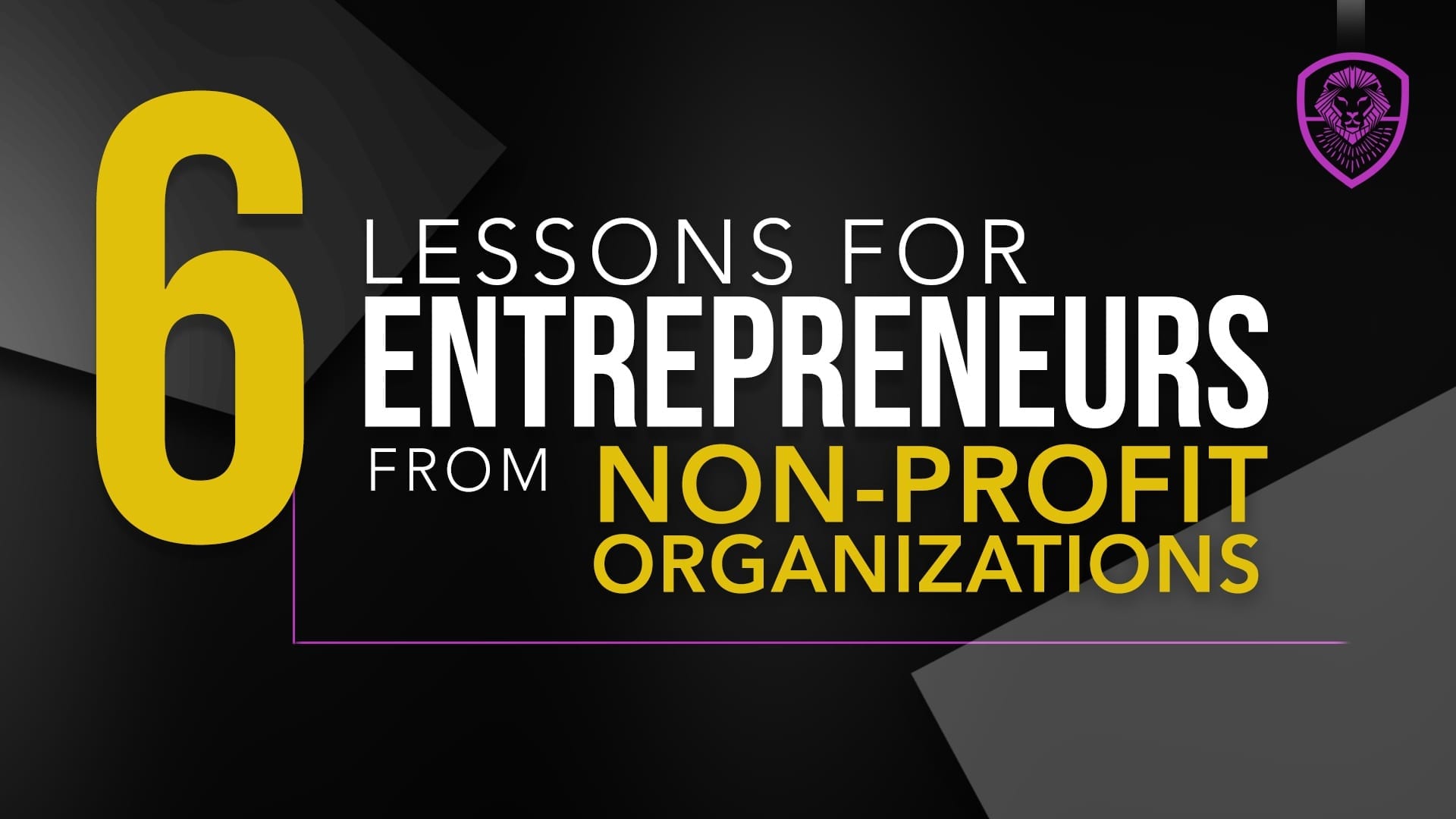Imagine what it’s like to run a non-profit on a daily basis. In this article I get into what entrepreneurs can learn from non-profit organizations.
6 Lessons for Entrepreneurs from Non-Profit Organizations
There’s a lot entrepreneurs can learn from non-profit organizations. Here are six main points that I came up with on what we as startup entrepreneurs can learn from different non-profit organizations.
#1: Non-Profits Constantly Talk About Their Cause and Crusade
First, non-profits constantly talk about their cause and crusade. They can’t help talking about it! Profit entrepreneurs often talk about their numbers; things like profits and revenue. They talk about the business and how-to, and not enough about the bigger picture. A non-profit knows that constantly talking about your purpose and cause is what gets you funding.
#2: Non-Profits Are Good At Teaching The Basics
Next, because non-profits work with volunteers every day, they become very good at teaching the basics.
In the corporate world you train someone and then don’t need to teach them that same thing again because they’re already good at it. Then you teach them a few other things, and they’re all set. They can stay with you and do the same thing for the next five or more years.
That’s not the case with non-profits. Non-profits deal with numerous volunteers so they’re always teaching the basics. Because of this, non-profit leaders are very good teachers, since they teach constantly.
#3: Non-Profit Organizations Always Ask People for Help
Next, non-profit organizations are always asking people for help.
In contrast, especially once success comes for startup entrepreneurs, ego comes with it. That ego prevents people from asking for help. And sometimes even rookie entrepreneurs don’t like to ask people for help because you’re not “supposed” to ask people for help.
Well, anyone that runs a non-profit always asks for help. They regularly say things like, “Hey Mary, do you mind helping us out?” or “John, do you have a couple of minutes? Would you mind helping us with this project? If you could help us out, we’d definitely appreciate it.”
Sometimes startup entrepreneurs feel like they don’t have the right to ask for help. But when you’re smaller, you have to ask a lot of people for help. And when you get bigger, you still have to ask a lot of people for help.
#4: Non-Profits Are Very Good at Stretching the Money
Next, non-profits are very good at stretching money. They can put a $20,000 event together with $1,000. In contrast, a startup entrepreneur may spend $50,000 for a $20,000 event.
Non-profits look for ways to spend less to get the work done, such as through volunteers.
At the beginning stages of a company, being an entrepreneur yourself, money’s tight and you can’t spend a lot of money on a lot of things, so you need help as much as possible to figure out how you can stretch the money you have. Non-profits are very, very good at breaking it down and trying to get it as tight as possible.
#5: Non-Profits Become Immune to Rejection
Next, because non-profit leaders ask so many people for help and are rejected regularly, they become immune to rejection. Since non-profits have to raise money, they are told “no” frequently. You can’t run a non-profit without being rejected every single day.
Entrepreneurs also need to learn how to handle rejection.
#6: Non-Profits Don’t Become Emotionally Attached to People Coming and Going
Last but not least, non-profit organizations see a lot of people come, and they see a lot of people go. They see a lot of people come and help out for a few months, and they’re gone and another person comes in. Eventually they find the right leaders within a non-profit that buys into the cause, and that person may be promoted into a leadership position. But non-profit leaders don’t get emotionally attached to people coming and leaving.
Sometimes entrepreneurs say, “You know that I guy? I thought he was going to come. I thought he was going to do this or that. And he left. That’s why my business is not going to work.” That happens when you become too attached to one person.
Non-profits appreciate that you came, learned, gave some time, helped out, and then moved on.
My Challenge To You
If you know of any local non-profits that do well, treat the leader to lunch and ask them questions such as, “How do you ask for help? How do you raise money? What do you do to get people to support your cause? How do you have such thick skin so that it doesn’t bother you when people reject you?”
You will be amazed by how much you can learn from a leader that’s running a non-profit as a startup entrepreneur. It will take your business to a whole different level.





